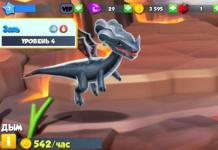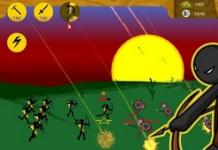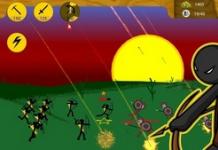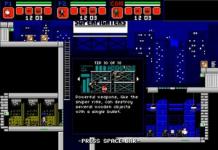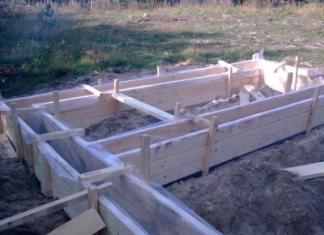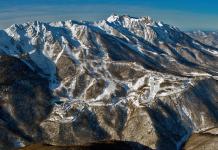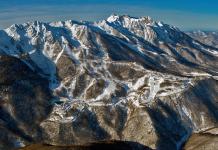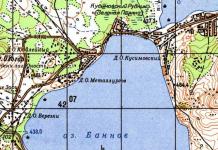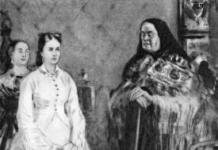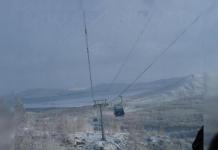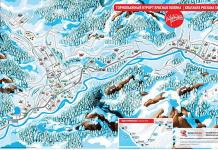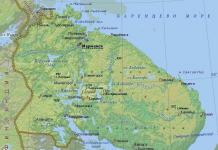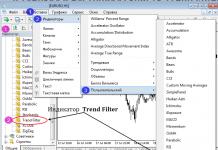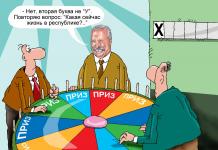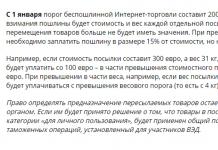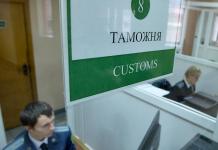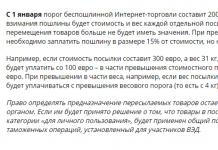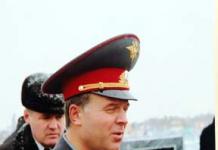Today, the legendary cosmonaut, on the example of which more than one generation of pilots grew up, has passed away: Georgy Grechko has also passed away. He was 85 years old. Twice Hero of the Soviet Union, a man of the era of the formation of space flights, when all eyes on Earth were directed upwards, and people believed that the conquest of the solar system was a matter of the coming decades. Three orbital flights, many years of scientific work... Georgy Mikhailovich himself said: he was one of those who were lucky enough to make the wildest dream of all Soviet boys come true.
Only a person with a truly unearthly passion and love not only for the stars, but also for life itself can conquer - and conquer the cold space. Not aging in soul, to joke as if there were almost nine dozen behind him.
For him, space was his whole life at the age of 15, when he read space odysseys, and at 44, when he first went to the stars, and at 85. Life is in a dream and in reality.
“Recently, I had a dream that I was being taken to the start. And somehow, half in a dream, half in reality, I think: wait, it seems it's not my turn. It seems that there was no special preparation, and the ship was somehow strange. Then I woke up, ”said Georgy Grechko.
An engineer by education, Grechko defended his graduation project at the Design Bureau of Korolev himself. He made his way into the cosmonaut corps - he was one of the few civilian, non-military astronauts. In total, he worked in orbit for 135 days. For three flights, everything seemed to be: a fire at the station, and a deadly landing, and a spacewalk. Of course, he believed in fate, but only in the one that the person himself does.
“10 percent - you can’t escape fate, and 90 percent - your fate is in your hands,” said the cosmonaut.
Today we are already used to the fact that communication with the orbit is established at the click of a key; on the Internet blogs of astronauts, photo and video reports. But Georgy Grechko and Aleksey Gubarev were the first to open the veil of that transcendental secret. A video diary was kept from the Salyut-4 orbital station, fragments of which were shown in the Vremya program.
“And so I liked it. They said - do two reports. Did. Then three. We say no, either work, or reportage,” said Georgy Grechko.
Life is like the study of man in space. And space in man. Having descended to Earth, Grechko continued to research, explain, and advise. He worked on television, was engaged in social activities. He acted in several feature films.
Georgy Mikhailovich repeated: the meaning of life is in creativity. And everything seemed to come easy to him. But he simply lived according to his father's covenant: smile, your worries should not worry anyone else. And no matter how hard it was, it hurt, Grechko simply did not show it. His smile was disarming.
Astronaut friends considered Grechko a master of practical jokes. Sometimes in space he could joke. During the flight with a colleague from Czechoslovakia, Vladimir Remek, Grechko on March 8, over the speakerphone, congratulated all the women of the world, except for Czechs and Slovaks.
"Why? Because we have a young pilot on board, handsome, energetic, knowledgeable, brave, and still unmarried. Where are the women of Czechoslovakia looking? About two months later, already on Earth, the Prague magazine came to me, in which this statement of mine was described, and it was said: the women of Czechoslovakia have corrected themselves, we are broadcasting a report about Remek's marriage, ”said Georgy Grechko.
Few could, like Georgy Grechko, tell, write, fall in love with space. He outlived many of his fellow astronauts. And at parting with them, he always lamented - with each one it was as if the whole universe was leaving.
“I appeal to TV people, journalists. You made heroes out of us. And it’s a pity that parting with our cohort also falls on your mission, ”he said.
The Soviet pilot-cosmonaut, twice Hero of the Soviet Union Grechko Georgy Mikhailovich was known throughout Russia and the post-Soviet space. The biography of a brave researcher, a faithful and reliable comrade is full of interesting and sometimes fantastic events.
Childhood and youth
The childhood and youthful years of the future researcher and cosmonaut were spent in Leningrad. Here he was born. A happy event in the family of the father of cosmonaut Mikhail Fedorovich and mother Alexandra Yakovlevna happened on May 25, 1931. Georgy's mother came to Leningrad from Belarus, his father came from Ukraine, so George turned out to be half Ukrainian, half Belarusian by nationality.
A week before the attack of the Nazi invaders, a ten-year-old boy was taken to visit his grandmother in Ukraine. For two years he lived in the occupied territory, in 1943 he returned home. In 1947, schoolboy Georgy Grechko went to the Kola Peninsula and participated in geological exploration.
He graduated from a secondary school in 1949, entered the Leningrad "Voenmekh" and in 1955 graduated from it with "excellent". After the institute, he receives a distribution at the Design Bureau of S. Korolev, earlier the defense of the diploma also took place here.

A young engineer with unique technical knowledge, together with other specialists, is developing a new rocket to launch the first artificial Earth satellite into orbit. Subsequently, he participates in preparations for the launch of other aircraft.
astronautics
The era of astronautics, its finest hour, was coming. Work under the leadership for Georgy Mikhailovich was the main thing. Engineers and scientists began to be accepted into the cosmonaut corps. Georgy passed the medical examination, his physical form, height and weight turned out to be suitable, and Grechko was among the lucky ones. So, at the age of 35 (in May 1966), he was enlisted as an astronaut.
First, Georgy Mikhailovich leads a group of future test cosmonauts, then in April 1968 he is appointed a tester, and in May he is enrolled in the TsKBEM cosmonaut corps. The first flight is still far away, he gets into an accident, breaks his leg and is in reserve for a long time. Meanwhile, the astronaut does not stop training and improves his skills.

As part of the group, Georgy is undergoing general space training, preparing for flights to the Moon under the Soviet program. After its closing, the cosmonaut is transferred to training for piloting Soyuz-type spacecraft and work on the Salyut orbital stations. When Soyuz-9 was launched in June 1970 and Soyuz-12 in 1973, Grechko was part of the reserve crew.
Soon he leaves the "bench" and makes three flights into space. On January 10, 1975, on the Soyuz-17 spacecraft, he sets off for the first space flight together with flight engineer Alexei Gubarev. The flight lasted 29 days; the astronauts returned to Earth on February 9.

On December 10, 1977, Soyuz-26 and the Salyut-6 orbital complex - Soyuz-26 are launched. On-board engineer - Yuri Romanenko. The flight lasted 96 days (until March 16). On December 20, during the flight, the astronaut goes into outer space to check and evaluate the docking station of the station. The time spent in outer space is 1 hour 28 minutes. For the first two flights, Grechko was twice awarded the title of Hero of the Soviet Union.
On September 17, 1985, Grechko made his third flight on the Soyuz T-14 spacecraft as a flight engineer. The flight program was short-term during the shift change at Salyut-7. The cosmonaut returned to earth on September 26 on the Soyuz T-13 spacecraft. This flight was made by him at the age of 54, which was another achievement of the astronaut.
 Cosmonaut Georgy Grechko (left) as part of the Soyuz-17 team
Cosmonaut Georgy Grechko (left) as part of the Soyuz-17 team In the interval between the second and third flight, Grechko was trained in international programs. In April 1984, he was included in the backup Soviet-Indian crew of the Soyuz T-11. For three flights, the time spent in space was 134 days 21 hours 32 minutes 52 seconds.
In 1989, the astronaut was nominated for people's deputies, but he casts his votes.

In 1977-1990 he hosted the program "This Fantastic World". The heroes of the program were popular science fiction writers. For decades, Grechko has collaborated with filmmakers to help create films about space. He became the main consultant for the films "Purple Ball" (1987) and "Under the Constellation of Gemini" by Boris Ivchenko (1979). Grechko played himself in “Should we send ... a messenger?” (1998).
The cosmonaut's filmography also includes two documentaries of 2011 “Georgy Grechko. Trajectory of Fate” and “Georgy Grechko. I've been in space, I believe in God." In the same year, the astronaut collaborated with the Kultura TV channel. Grechko became an expert for the popular science film "Living Universe". The cycle consisted of four pictures about the Moon, Venus, Mars and the Sun.

In the second half of his life, Georgy Grechko consciously came to faith. Initially, Grechko was looking for signs of life of aliens, and in the 60s he even went with the expedition of Sergei Pavlovich Korolev, created on the occasion of studying the alleged alien spacecraft, which in fact was, in their opinion, the Tunguska meteorite. Later, Grechko was engaged in ufological research together with Vadim Chernobrov.

In 2006, they went on an expedition to find a "cave" and a "white disc-shaped object" in the Sinai in Egypt. Four years later, colleagues organized a trip to the village of Chasovnya in the Pavlovo-Posad district, which is considered an anomalous zone.
In his memoirs, the astronaut reflected on the role of science and religion in the fate of mankind and came to the conclusion that science is neutral in relation to good and evil. Since the parents were atheists, one of the boy's grandmother secretly baptized her grandson in childhood. But the second did not know about this, so she again turned to the clergy to conduct the sacrament. Later, Georgy Grechko jokingly said that he had two guardian angels.

After the flights, Georgy Grechko had to answer reporters' favorite questions: about aliens and about God. The astronaut used anecdotes for answers. Initially, George claimed to have seen a UFO through the porthole. Then the astronaut corrected himself that it was a joke.
In an interview, Grechko also told an anecdote about God, the existence of which was asked after the flight by the Pope. The meaning of history, according to the astronaut, boiled down to the fact that God must be sought not in space, but in the soul. Many of the astronaut's phrases were taken as aphorisms and used as quotations.
Personal life
George's personal life was also eventful, as evidenced by three marriages, the presence of children and grandchildren. The first wife of the pilot-cosmonaut was his age Tutynina Nina Viktorovna, an engineer at the State Design Bureau NPO Energia. In the second marriage with a foreign language teacher Maya Grigorievna Kazekina (born in 1938), two children were born - sons Alexei (1958) and Mikhail (1962).
The third wife was Lyudmila Kirillovna, born in 1953, who worked as the chief physician in the astronautics federation. In 1979, a daughter, Olga, was born in the family.

Georgy Mikhailovich had many different hobbies: he went skiing, went scuba diving, was engaged in shooting and loved motorsport. Since childhood, after he was presented with an album with stamps, he became interested in philately. The collection of his stamps is devoted to astronautics.
Grechko was a passionate fan of science fiction and the works of the classics of world literature:, and others. He also wrote and became the author of several books. One of them - "Cosmonaut No. 34. From the torch to the aliens" - contains memories of people, space flights, funny and a little sad stories from life. The book contains many unique photographs and drawings.

The health of the space veteran did not worry Grechko for many years, and he remained the oldest of all cosmonauts living in the new century.
Death
Pilot-cosmonaut Georgy Grechko early in the morning on April 8, 2017 at the age of 85. Information about preliminary hospitalization was not confirmed. According to his daughter, he came to the hospital to consult a doctor. Before his death, Georgy Grechko experienced a sharp drop in pressure, which even the means of resuscitation did not help to restore.

In the last minutes, Lyudmila's wife was next to her husband. The cause of death is heart failure. The funeral of Georgy Mikhailovich Grechko took place on April 11 in Moscow at the Troekurovsky cemetery. The grave of the hero of the USSR is located on the Alley of Cosmonauts.
Awards
- 1961 - Medal "For Labor Distinction"
- 1070 - Medal "For Valiant Labor. In commemoration of the 100th anniversary of the birth of V. I. Lenin "
- 1970 - Medal "For the development of virgin lands"
- 1975, 1978 - Two Gold Star medals of the Hero of the Soviet Union
- 1975, 1978, 1985 - Three orders of Lenin
- 2011 - Medal "For Merit in Space Exploration"
RIGA, April 8 - Sputnik. Cosmonaut, twice Hero of the Soviet Union Georgy Grechko died on Saturday night at the age of 85, RIA Novosti reports.
"On the night of April 8, at the age of 86, the USSR pilot-cosmonaut, twice Hero of the Soviet Union, engineer and cosmonaut of OKB-1 - TsKBEM - NPO Energia Georgy Mikhailovich Grechko died," - reported on the website of the magazine "Cosmonautics News" .
Biography
Russian cosmonaut Georgy Mikhailovich Grechko was born on May 25, 1931 in Leningrad (now St. Petersburg) in the family of an employee. He spent his childhood and school years in Leningrad. In 1941, a week before the start of World War II, his parents sent him on vacation to his grandmother in Ukraine. He spent two years in occupation. In 1943 he returned to Leningrad.
As a schoolboy, in 1947 Georgy Grechko participated in the work of the polar exploration party on the Kola Peninsula.
In 1949 he graduated from a secondary school in Leningrad, in 1955 - with honors from the Leningrad Military Mechanical Institute (Voenmekh).
In the Central Design Bureau of Experimental Machine Building (TsKBEM) he worked since 1955 as an engineer, since 1959 as a senior engineer, since 1961 as a group leader. Georgy Grechko participated in the launch of the world's first artificial Earth satellite, took part in the preparation and launch of many Soviet spacecraft.
In May 1966, he was enrolled in the 731st department (cosmonaut detachment) of TsKBEM as the head of the group of candidates for test cosmonauts. In April 1968 he was appointed tester of the same department. In May of the same year, he was enrolled in the cosmonaut corps of TsKBEM.
Georgy Grechko completed a full course of general space training. He trained as part of a group for flights under the Soviet lunar program, after which he was transferred to training for flights on Soyuz-type spacecraft and Salyut-type orbital stations. In June 1970, he was a member of the backup crew during the flight of the Soyuz-9 spacecraft, and in September 1973, he was a member of the backup crew during the flight of the Soyuz-12 spacecraft.
Georgy Grechko made his first space flight on January 10 - February 9, 1975, together with Alexei Gubarev, as a flight engineer of the Soyuz-17 spacecraft and the Salyut-4 - Soyuz-17 orbital complex (call sign - Zenit-2) ). The flight duration was 29 days 13 hours 19 minutes 45 seconds.
He made his second space flight on December 10, 1977 - March 16, 1978, together with Yuri Romanenko as a flight engineer of the Soyuz-26 spacecraft and the Salyut-6 - Soyuz-26 orbital complex (call sign - Taimyr-2) . During the flight aboard the complex on December 20, 1977, he made a spacewalk, during which an inspection and assessment of the performance of one of the station's docking nodes was carried out. The spacewalk took 1 hour 28 minutes. The flight duration was 96 days 10 hours seven seconds.
© Sputnik / Alexander Mokletsov
In the future, Georgy Grechko was trained for international space flights. In April 1984, he was part of the backup Soviet-Indian crew during the flight of the Soyuz T-11 spacecraft.
Grechko went on his third space flight on September 17, 1985 as a flight engineer of the Soyuz T-14 spacecraft under the short-term flight program during the shift change at the Salyut-7 station. On September 26, 1985 he returned to Earth on the Soyuz T-13 spacecraft. The flight duration was eight days 21 hours 13 minutes. In just three flights into space, Grechko flew 134 days 21 hours 32 minutes 52 seconds.
The result of scientific research and unique experiments carried out by him on the orbital station was the development of a hypothesis about the thin layered structure of the Earth's atmosphere.
After leaving the cosmonaut corps in 1986, he was transferred from NPO Energia to the Institute of Atmospheric Physics of the USSR Academy of Sciences. From July 1986 to March 1992 he was an instructor-test cosmonaut of the 1st class of the Institute of Atmospheric Physics of the USSR Academy of Sciences, head of the laboratory "Research of the Earth's atmosphere by space means".
From 1992 to 1997 he worked as a leading researcher at the Institute of Atmospheric Physics of the Russian Academy of Sciences.

© Sputnik / Pushkarev
Since 1997, he has been Deputy Chairman of the Supervisory Board of the Investment and Savings Bank.
In 2007, he was elected a member of the Board of Directors of OAO Investsberbank.
Georgy Grechko is the author of 28 scientific articles published in domestic and foreign journals, the brochure "Start into the unknown", the book "Cosmonaut No. 34. From the torch to the aliens", co-author of the book "Planet in the frame". Together with cosmonaut Alexei Gubarev, he filmed the popular science film "Business Trip to Orbit" at the Salyut-4 station.
From 1979 to 1990 he was the host of the program "This Fantastic World" on television. The program was a cycle of television adaptations of works by famous Soviet and foreign science fiction writers.
Georgy Grechko - Doctor of Physical and Mathematical Sciences (1984), USSR pilot-cosmonaut (1975), 1st class test cosmonaut instructor (1978), twice Hero of the Soviet Union (1975, 1978), Hero of the Czechoslovak Socialist Republic (1978) . He was awarded three Orders of Lenin (1975, 1978, 1985), the Czechoslovak Order of Klement Gottwald (1978), the Indian Order "Kirti Chakra" (1984), medals, including "For Merit in Space Exploration" (2011), has awards from public organizations .
Laureate of the State Prize of the Ukrainian SSR and the State Prize of the Estonian SSR.
Grechko is a full member of the International Academy of Astronautics, an academician of the International Academy of Science and Business.
Honorary citizen of the cities of Kaluga, Angarsk (Russia), Dzhezkazgan, Arkalyk (Kazakhstan), Prague (Czech Republic), Varna (Bulgaria).
Died cosmonaut Georgy GrechkoMOSCOW, April 8 - RIA Novosti. On the night of April 8, cosmonaut Georgy Grechko died. Previously, he was hospitalized with a suspected stroke. May 25, he was supposed to be 86 years old.
On the night of April 8, at the age of 86, the USSR pilot-cosmonaut, twice Hero of the Soviet Union, engineer and cosmonaut of OKB-1 - TsKBEM - NPO Energia Georgy Mikhailovich Grechko died.
Georgy Grechko was born on May 25, 1931 in Leningrad. In 1975, he made his first flight on the Soyuz-17 spacecraft as a flight engineer. In total, Grechko has three flights and one spacewalk.

Georgy Grechko with his wife
“The editors of the MK express their condolences to the family and friends of Georgy Mikhailovich and to everyone who knew him. His life and destiny are inseparable from the history of Russian cosmonautics,” the message says.
As MK previously wrote, on Thursday night Grechko felt unwell, he was hospitalized with a suspected stroke. Suspicions were not confirmed - the reason for the deterioration of health was called low blood pressure. On April 7, Grechko was discharged from the hospital.
Georgy Mikhailovich flew into space three times - in 1975, 1978 and 1985. He made his last flight at the age of 54. Grechko - twice Hero of the Soviet Union. Since May 1986. Grechko worked at the Institute of Biosphere Physics of the Russian Academy of Sciences. He was also a master of sports in motorsport.

10 rules of life of Georgy Grechko
-I look younger, perhaps because I have always worked like hell and tried to live interestingly.
Each long flight takes a year of life
I never considered myself completely healthy.
I lived by the clock for almost 20 years
I left the detachment not for health reasons, but of my own free will. Because I was offended
Tests (for astronauts) I divided into two categories: heavy and nasty
You have to take risks in life. I took a risk. Everything worked out
I often argued with myself
I would make all the same mistakes that I made in life, only faster. To be able to do others
Until the age of 75, live in peace. Health, of course, is no longer the same, but it is tolerable, and after that the person is so weakened that it becomes very difficult to live.
Biography of George Grechko

Georgy Mikhailovich Grechko was born on May 25, 1931 in Leningrad (now St. Petersburg) in the family of an employee. He spent his childhood and school years in Leningrad.
In 1941, a week before the start of World War II, his parents sent him on vacation to his grandmother in Ukraine. He spent two years in occupation. In 1943 he returned to Leningrad.
As a schoolboy, in 1947 Georgy Grechko participated in the work of the polar exploration party on the Kola Peninsula.
In 1949 he graduated from a secondary school in Leningrad, in 1955 - with honors from the Leningrad Military Mechanical Institute (Voenmekh).
He defended his graduation project at the Korolev Design Bureau (OKB-1 NII-88 of the USSR Ministry of Defense, later renamed OKB-1, then at the Central Design Bureau of Experimental Engineering (TsKBEM), later at NPO ENERGIA, now RSC Energia named after S. P. Koroleva) in Kaliningrad (since 1996 - Korolev) of the Moscow Region and was assigned there after graduation. He worked at the enterprise since 1955 as an engineer, since 1959 as a senior engineer, since 1961 as a team leader. Georgy Grechko participated in the launch of the world's first artificial Earth satellite, took part in the preparation and launch of many Soviet spacecraft.
In May 1966, he was enrolled in the 731st department (cosmonaut detachment) of TsKBEM as the head of the group of candidates for test cosmonauts. In April 1968 he was appointed tester of the same department. In May of the same year, he was enrolled in the cosmonaut corps of TsKBEM.
Georgy Grechko completed a full course of general space training. He trained as part of a group for flights under the Soviet lunar program, after which he was transferred to training for flights on Soyuz-type spacecraft and Salyut-type orbital stations. In June 1970, he was a member of the backup crew during the flight of the Soyuz-9 spacecraft, and in September 1973, he was a member of the backup crew during the flight of the Soyuz-12 spacecraft.
Georgy Grechko made his first space flight on January 10 - February 9, 1975, together with Alexei Gubarev, as a flight engineer of the Soyuz-17 spacecraft and the Salyut-4 - Soyuz-17 orbital complex (call sign - Zenit-2) ). The flight duration was 29 days 13 hours 19 minutes 45 seconds.
He made his second space flight on December 10, 1977 - March 16, 1978, together with Yuri Romanenko as a flight engineer of the Soyuz-26 spacecraft and the Salyut-6 - Soyuz-26 orbital complex (call sign - Taimyr-2) . During the flight aboard the complex on December 20, 1977, he made a spacewalk, during which an inspection and assessment of the performance of one of the station's docking nodes was carried out. The spacewalk took one hour and 28 minutes.
The flight duration was 96 days 10 hours seven seconds.
In the future, Georgy Grechko was trained for international space flights. In April 1984, he was part of the backup Soviet-Indian crew during the flight of the Soyuz T-11 spacecraft.
Grechko went on his third space flight on September 17, 1985 as a flight engineer of the Soyuz T-14 spacecraft under the short-term flight program during the shift change at the Salyut-7 station. On September 26, 1985 he returned to Earth on the Soyuz T-13 spacecraft. The flight duration was eight days 21 hours 13 minutes. In just three flights into space, Grechko flew 134 days 21 hours 32 minutes 52 seconds.
The result of scientific research and unique experiments carried out by him on the orbital station was the development of a hypothesis about the thin layered structure of the Earth's atmosphere.
After leaving the cosmonaut corps in 1986, he was transferred from NPO Energia to the Institute of Atmospheric Physics of the USSR Academy of Sciences. From July 1986 to March 1992 he was an instructor-test cosmonaut of the 1st class of the Institute of Atmospheric Physics of the USSR Academy of Sciences, head of the laboratory "Research of the Earth's atmosphere by space means".
From 1992 to 1997 he worked as a leading researcher at the Institute of Atmospheric Physics of the Russian Academy of Sciences.
Since 1997, he has been Deputy Chairman of the Supervisory Board of the Investment and Savings Bank.
In 2007, he was elected a member of the Board of Directors of OJSC "Investsberbank" (since 2008 - OJSC "OTP Bank").
Simultaneously with scientific and engineering activities, Georgy Grechko was engaged in social work. He was the chairman of the USSR Alpine Skiing Federation and the chairman of the USSR Motorsport Federation.
In 1979-1992 he was Deputy Chairman of the Soviet Committee for the Defense of Peace, and in 1993-1994 - Chairman of the Federation of Peace and Accord (UN advisory body). In 2002-2008 - President of the North-Western Interregional Public Organization of the Federation of Cosmonautics of the Russian Federation, Honorary President of the Association of Planetariums of Russia.
From 1979 to 1990 he was the host of the program "This Fantastic World" on television. The program was a cycle of television adaptations of works by famous Soviet and foreign science fiction writers.
Georgy Grechko - Doctor of Physical and Mathematical Sciences (1984), USSR pilot-cosmonaut (1975), 1st class test cosmonaut instructor (1978), twice Hero of the Soviet Union (1975, 1978), Hero of the Czechoslovak Socialist Republic (1978) . He was awarded three Orders of Lenin (1975, 1978, 1985), the Czechoslovak Order of Klement Gottwald (1978), the Indian Order "Kirti Chakra" (1984), medals, including "For Merit in Space Exploration" (2011), has awards from public organizations .
Laureate of the State Prize of the Ukrainian SSR and the State Prize of the Estonian SSR.
Grechko is a full member of the International Academy of Astronautics, an academician of the International Academy of Science and Business.
Honorary citizen of the cities of Kaluga, Angarsk (Russia), Dzhezkazgan, Arkalyk (Kazakhstan), Prague (Czech Republic), Varna (Bulgaria) and others.
The death of cosmonaut Grechko occurred at 6:40 in the morning. Twice Hero of the Soviet Union died in the Moscow 81st City Clinical Hospital named after Veresaev.
ON THIS TOPIC
Georgy Grechko's daughter Olga said that the astronaut died due to chronic diseases. According to her, the pilot smiled in the last minutes of his life. "He was strong. And now my mother was with him and he kissed her hand and smiled. He loves us all," REN TV quoted Olga.
The circumstances of the death became known to the first vice-president of the Russian Cosmonautics Federation, Oleg Mukhin. According to him, the astronaut kept his sanity before his death. “Two weeks ago we talked to him, but he said that his health was bad,” Life.ru quotes him.
Recall that Georgy Grechko died on the morning of April 8. The official cause of death was acute heart failure.
On the eve of April 7, reports appeared on the Web about the astronaut's hospitalization. As they wrote, later his daughter denied this information.
Georgy Grechko - Soviet cosmonaut, twice Hero of the Soviet Union. He flew into space three times - in 1975, 1978 and 1985. Interestingly, Grechko made his last flight at an advanced age: he was 54 years old. The astronaut was fond of racing, skydiving, as well as shooting and collecting stamps.




